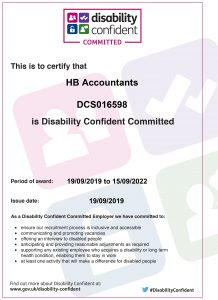There’s no doubt that our modern, complex and digitally connected world can be a stressful place to do business. But did you know that Friday 12 July is World Simplicity Day? The team at HB challenge you to take the opportunity to makes small changes that will have a big impact. For example, consider what life might be like if you created space in your working week when you didn’t have to react to phone calls, employee questions and supplier issues, and instead had the scope to think creatively about future plans. Or consider what you might achieve if you could step away from time-consuming tasks like payroll, tax returns and annual accounts and make space in your life for more business development or personal enjoyment.
Continue reading →



